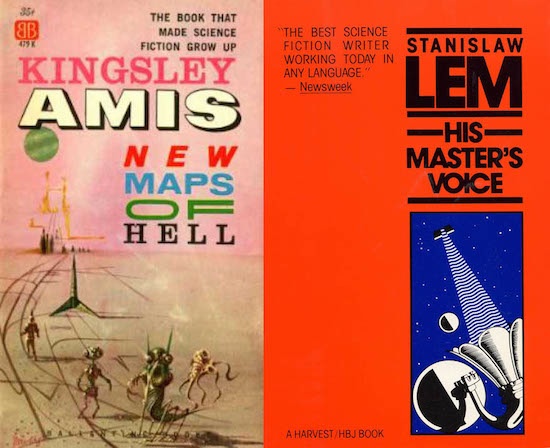Since the beginning of the genre, science fiction writers have speculated on what it would be like to communicate with beings from another world. For the most part, these scenarios don’t depart much from how we humans communicate with each other. Both literal and literary devices are introduced to smooth over differences. Someone sets up a machine, usually called a universal translator, which seamlessly renders alien speech intelligible. A galactic lingua franca—some sort of space English—is another related convention.
These are efficiencies, meant to push along the plot or prevent awkward assumptions on the part of the reader, such as aliens speaking English or Hebrew or whatever language in which the story happens to be written. In the days when the genre consisted primarily of short fiction, such quick and dirty means were also necessary to shepherd the reader as quickly as possible into the adventure, without too much digression into the subject of linguistics.
Advances in machine translation, such as Skype’s new instantaneous voice-to-voice translation service, have borne out, at least in part, the speculations of the hack magazine writer. But universal translation hasn’t always seemed plausible. Writing in 1960, Kingsley Amis called it “blatant pseudoscience.” In his survey of science fiction, New Maps of Hell, he makes an apology for the reliance on UT as a plot device, believing that its use might stretch the credulity of the general reader to the breaking point. Scenarios of faster-than-light travel were much more feasible, Amis thought—and with good reason, writing as he did in a time when aerospace was the vanguard technology.
READ MORE…


